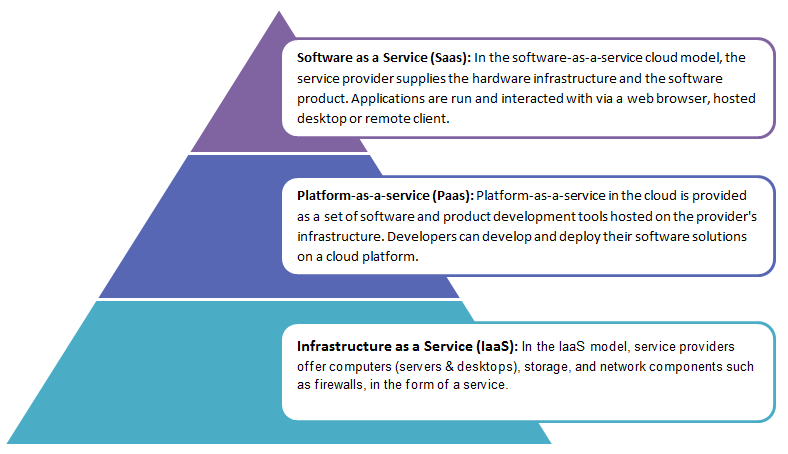Cloud Computing
The big leap in the history of IT industry has led to a point that inspires many innovations and new technologies. Cloud computing is the most talked about and emerging trends in the technology world. This article is an attempt to clarify the definition of cloud computing and its business benfits.
What is cloud computing?“The Cloud” a metaphor for the Internet in general terms. If combine with computing, it transforms into a huge technology. Cloud computing is a technology that allows use of computing resource to be delivered as a service over a network (primarily the Internet). Cloud computing is the big leap in the history of IT industry. Through the cloud, everything will be delivered as a service, from computing power to business processes to personal interaction.
Cloud Architecture Cloud Classification
Public Cloud
Cloud Classification
Public Cloud
Public cloud (also referred to as ‘external’ cloud) describes the conventional meaning of cloud computing: scalable, dynamically provisioned, often virtualised resources available over the Internet from an off-site thirdparty provider, which divides up resources and bills its customers on a ‘utility’ basis.
Private CloudPrivate cloud (also referred to as ‘corporate’ or ‘internal’ cloud) is a term used to denote a proprietary computing architecture providing hosted services on private networks.
Hybrid CloudIt has been suggested that a hybrid cloud environment combining resources from both internal and external providers will become the most popular choice for enterprises.
Cloud ServicesThere are many patterns, or categories, in the world of cloud computing that you can use to meet the needs of your enterprise architecture. Some solve specific problems, such as security-as-a-service or testing-as-a-service, and some provide complete platforms, such as platform-as-a-service or infrastructure-as-a-service. They all have trade-offs and different problems that each solves. However, you must consider them all in light of your architecture. So, the categories of service are storage, database, information, process, application, platform, integration, security, management/governance, testing, and infrastructure.
Key Benefits- Removal/reduction of capital expenditure
- Reduced administration costs
- Improved resource utilisation
- Scalability on demand
- Quick and easy implementation
- Quality of service and Guaranteed uptime, SLAs
- Anywhere Access
- 24x7 Technical Support
- Disaster recovery/backup
Cloud computing has moved from the Internet to the smartphone. You’re now able to do your computing from anywhere, and no longer even have to be tethered to your laptop (you can tether your phone to your laptop, but that is a different story) 100% on the go. From social cloud connections to work cloud connections, your smartphone is going to be the next step to cloud computing.
How does all this tie in? The more cloud technology expands, the more it expands to take on (or over, depending how you want to look at it) every facet of our lives. From work to play, we will be connected to a cloud in some way shape or form. What further expansions are there? It is really limitless.

